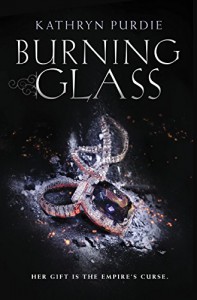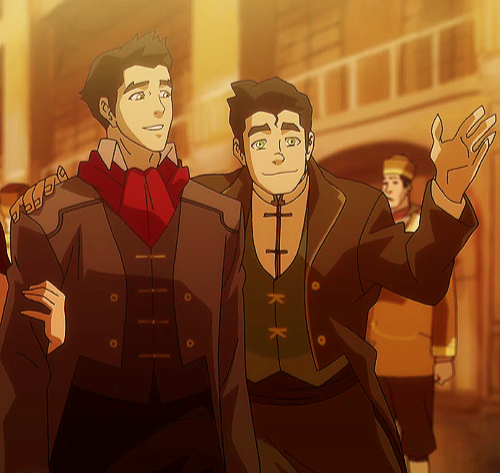

I have a superpower.
Not a very good one, and it’s one I don’t really tell people for fear they simply won’t believe me.
I’m an emotional chameleon.
I literally feel the emotions of people around me. Like an empath.
It was not that long ago that I confessed this useless and uncontrollable superpower to my husband when we were sitting in the car and I said to him, “Are you feeling down? I’m suddenly feeling down for no reason.”
Which, yes, sometimes does legitimately happen to me, but I am slowly beginning to be able to feel the difference between my (somewhat over the top and overwhelming) emotions and the emotions I’m tapping into. Well, not being able to feel the difference so much as recognising when it’s not mine, logically.
It doesn’t happen all the time. I’m not exactly an empath (though that does explain why I don’t really like second hand books). I can’t control this. I never know when it’s going to happen. Sometimes I emotionally align with my husband, which is scary, because he’s a diagnosed depressive and has been suicidal in the past. For example, just this last weekend, my husband, who occasionally takes sleeping tablets due to insomnia (and the depression, PTSD, and anxiety) took a sleeping tablet Friday night. All day Saturday both of us were groggy and needed naps. I was clearly feeding off him, or ‘chameleon-ing’ as we’ve started calling it.
My mother didn’t understand why I bawled my eyes out at the funeral of a great uncle I’d met maybe twice in my life.
When I went to parties, I could get naturally high just by being around drinking people without drinking myself.
It could be a cool superpower, if I could control it.
Part of the reason I’m so unsure about myself is because sometimes I just don’t know whose emotions I’m feeling. Are they mine? Are they my husband’s? The stranger in the car park whose child just threw up and made me almost hurl as well, even though I’m in a car driving away? The character on TV crying over the death of another character I don’t even care about?
Similarly, in Burning Glass, Sonya can feel, and is overwhelmed, by other people’s emotions. She’s called an Auraseer, although she can’t really see auras at all. After a tragic accident propels her into the role of the young emperor’s sovereign Auraseer, his personal bodyguard, Sonya becomes embroiled in a conspiracy to bring the monarchy down.
PLOT
I found the plot to be one of those generic YA spec-fic plots about bringing down a dissatisfying government. Nothing particularly original about it – and especially not in the pseudo love-triangle between the emperor (Valko) and his younger brother (Anton) the crown prince. We mostly spent our time with Sonya as she attempted (and frustratingly, failed) to learn to control her power, with the emperor who was trying in various ways to expand his kingdom and seduce her, or lost in the uninterpretable interactions between Sonya and the crown prince.
CHARACTERS
Sonya was an OK character. I liked how she actually struggled with darkness and badness inside her rather than just saying she was bad and unworthy – you know, the way Edward from Twilight is supposed to be this bad boy but you know he actually won all of the Boy Scout awards ever. In the hands of a lesser author, Sonya’s badness would have come directly from the evil of the people she was surrounded by, but there were no excuses made for the way she was and the actions she wanted to take to hurt people. She struggled with badness the way Kylo Ren struggled with goodness in The Force Awakens.
Also, Sonya never really had any agency until the very end, which I found frustrating. The main mystery she was meant to be working on only cropped up occasionally (and wasn’t even mentioned for about half the book) and she never made any progress with her power (except one time, which was a fluke) until the very, very end. She was determined to barge in on the revolutionary plot but kept coming up against immovable objects that couldn’t move the plot along. Sonya never learned! She never changed anything. She just thought that she, an untrained, uncultured, uneducated, half-wild gypsy girl was better than everyone else at court and knew better than everyone about everything. Her level of hubris could rival Celaena Sardothian from Throne of Glass.
The pseudo love triangle between Sonya, Valko, and Anton was never really going to be a real love triangle because from the start you could tell where the real chemistry was coming from and where Sonya was feeding off Valko’s feelings. That being said, I kind of guiltily enjoyed her early interaction with Valko, before he turned abusive. Valko is the kind of person who has had everything he ever wanted but is still spiteful, so I could understand the way he treated Sonya to spite Anton. Anton, on the other hand, was your typical bland heroic princeling. The real frustration was all of the descriptions of the moments between Sonya and Anton that essentially led to nowhere and then repeated themselves over and over again.
The way Valko and Anton were described, I kept getting a picture of Bolin and Mako from The Legend of Korra. Valko was described to have kind of a baby face while Anton looked very aristocratic with fine angles. Just imagine Bolin is the elder of the two:
WRITING
The writing was fine, I didn’t have any issues with the way the story was told. I did sometimes find it confusing to define the difference between Sonya’s emotions and those she was feeling from someone else, but as that’s entirely the point of the story, I can’t really criticise that. What I can criticise is the ending – specifically the climax. I was simply too confused to figure out what exactly had gone on, and I found it frustrating that moments beforehand seemed to repeat themselves as Sonya struggled to control her power. There were also no consequences for her being, truthfully, a crap Auraseer. The other issue I had was that the main mystery seemed only to come up when it was convenient. What I absolutely loved about this book was the fact that Sonya’s culture seemed to be roughly based on Slavic culture, with similar names, titles, traditions and objects used. Diversity doesn’t just mean non-white culture, and I enjoyed seeing the Slavic influences in the book.
One of the things I like to do is figure out why the book has the title it does, but unfortunately there is no burning or glass motifs, Sonya can’t be said in any way to be fragile like glass, and I can’t figure out why it has the title it does.
PACING
Yeah, the pacing is really this book’s greatest weakness. After a fantastic opening chapter, the pace drops dramatically right into the second chapter and struggles to regain itself. I found it slow and struggled at times to maintain my curiosity. There’s no real action, what with it being a book about feelings and emotions. It’s generally a slow book, and it really doesn’t help that at over 500 pages some scenarios are repeated ad nauseum.
OVERALL
If you like slow romances and those kind of fake love triangles where the girl never really has her heart set on both of them, then you might like this. Unfortunately this book is so hit and miss that I can’t recommend it specifically for romance lovers or fantasy lovers. I wouldn’t particularly recommend it for fantasy lovers but the hint of fantasy might be OK for non-fantasy readers. Similarly the fantasy elements and the main plot about the plotting revolution might be too much for those who just want to swoon over hot royal brothers. I certainly wouldn’t NOT recommend this book, but for once I am uncertain about which audience might enjoy it best.
I received this book for free from Katherine Tegan Books via Edelweiss. This does not affect my opinion of the book or the content of my review.

 3
3




